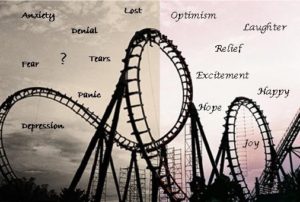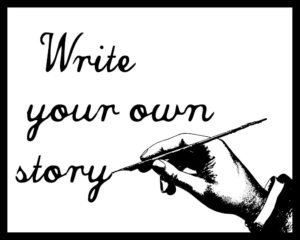This month’s ‘Writerly Witterings’ looks at how to use life’s ups and downs to inspire our writing.
Much of our own experience will find its way into our writing, whether its emotions we’ve felt, places we’ve visited or people we’ve met. Often this can be fictionalised, and the retelling an event or situation with the boost of personal knowledge improves our writing substantially.
Free Summer Mini Course
If you haven’t already, you may want to request your free summer mini course, ‘The 12 days of Summer Writing,’ which starts on 20 August 2019. This involves twelve summer themed writing prompts, which will draw out aspects of autobiography for all the writers taking part.
Writing from your own life can be extremely therapeutic and allow space for words to spill onto the page during difficult times. My dad sadly passed away at the end of last month and I have found myself unable to function in a creative sense since he took a turn for the worse.
However, I’ve stored up events and feelings to unleash into poems, which will probably never see the light of day but will help me. If this ‘being blocked’ situation resonates with you, you might find it helpful to read my 'Writerly Witterings' blog post from last month, ‘When Life gets in the Way of our Writing.’
 Life’s roller coaster, positive and negative, joyful and sad, with everything in between, makes us better writers. Yes, we can do research into everything we don’t know much about, and the internet is an amazing resource for this, but nothing can make us write a character’s situation more authentically than if we are writing about something using empathy and experience.
Life’s roller coaster, positive and negative, joyful and sad, with everything in between, makes us better writers. Yes, we can do research into everything we don’t know much about, and the internet is an amazing resource for this, but nothing can make us write a character’s situation more authentically than if we are writing about something using empathy and experience.
So use your life to write from. All of us have been through so much and have a rich tapestry of events and other characters to draw from. The best fiction is built out of truth.
Writing from your Life
Here’s an exercise to help you turn a life experience of your own into a deep piece of writing. Jot down as many notes as possible, concentrating on a moment in time.
What? Think of a time you felt a particular emotion. (joy, sadness, anger, excitement, jealousy, etc)
Who? Who else was involved? Name and describe them.
Where? Bring the setting to life as much as you can. Include sight, sound, smell, etc.
How? How did the experience affect you? What lasting effect did it have on you? Did it change you or your life significantly?
Why? Why has it left a mark on you? Could it benefit anyone else by being written about. Is it helping you to relive it?
Work from your notes to create a scene or a piece of flash ‘faction’ that brings the above event back to life. Ensure it includes the following:
- Structure – a beginning, middle and end.
- Emotion – it is emotion that connects a reader to our stories.
- Dialogue – this brings a piece of writing to life.
- Character action – how a character behaves reveals a lot about who they are and how they feel.
- A change – all writing, from poetry to fiction, should offer the occurrence of change.

If you feel inspired by this activity, check out my ‘Write your Life Story’ Course,' which I’m teaching in Otley, Leeds, from September and which I also offer as one of my ‘distance learning’ writing courses. Or follow this link if you’d like more information about my other classroom-based courses, all starting next month.
I am hoping that by next month, I will somehow find my writing ‘mojo’ again. Next month’s blog post will be on the theme of new beginnings, as September often brings change and an era of fresh starts whether it is fresh momentum or learning something new.
If you would like to book a fifteen minute telephone chat with me to discuss your writing aspirations, click here to arrange a convenient time.
Or alternatively if you’ve any comments or questions relating to this month’s blog post, either drop me a line or post into the comments below.
With best wishes, Maria
August 2019